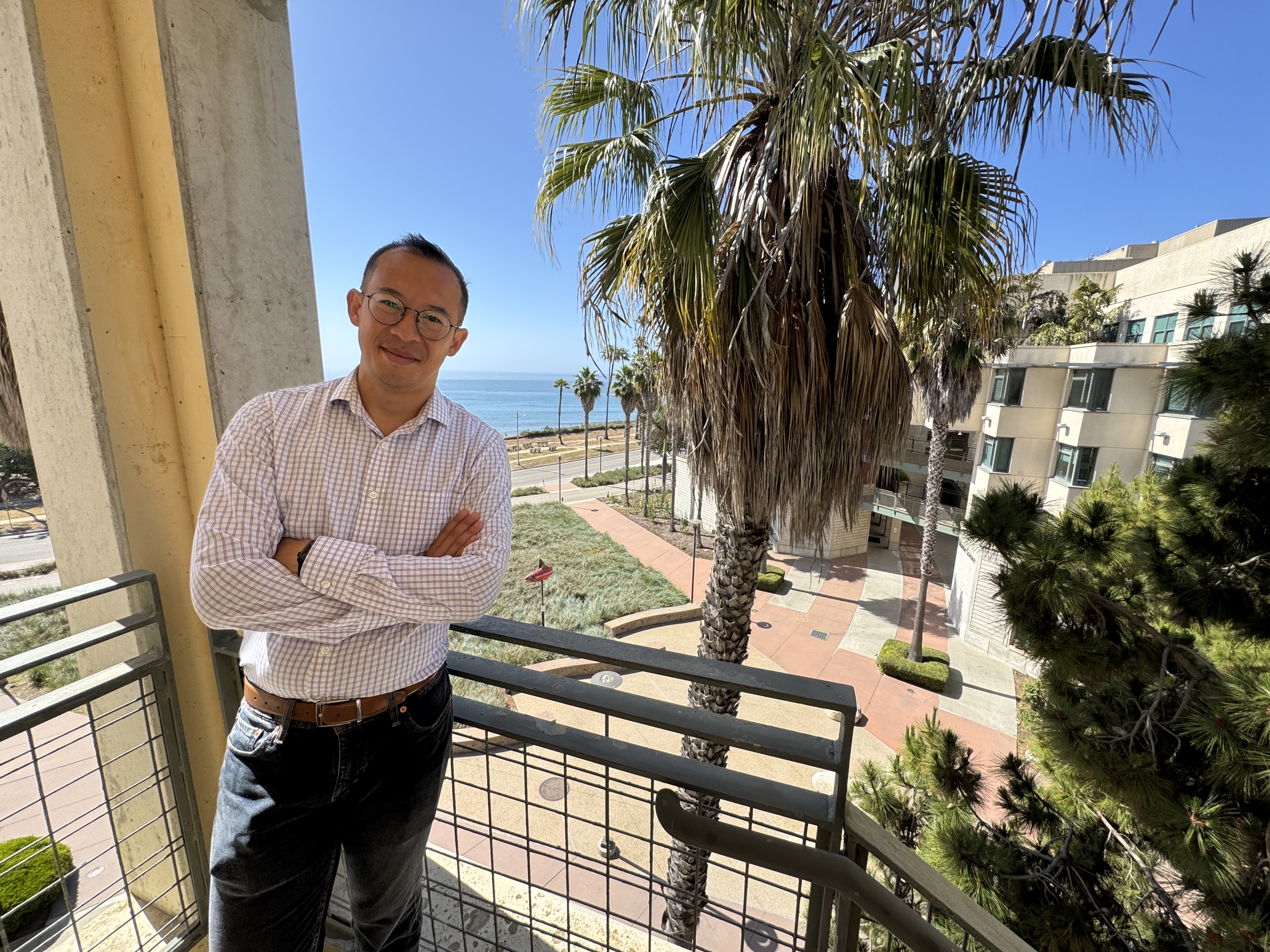
When Kyle Meng stepped into the hearing room in Sacramento on April 30, he wasn’t just delivering policy advice—he was delivering a decade’s worth of expertise at the intersection of environmental economics and climate science. As California weighs reauthorizing its signature cap-and-trade program, Meng’s voice is increasingly one of the most trusted in the conversation.
“I have been involved with carbon markets for almost two decades, both as a researcher and as a policy advisor,” said Meng, an associate professor at UC Santa Barbara’s Bren School and the Climate & Energy Director of the Environmental Markets Lab (emLab). “And California’s cap-and-trade remains one of the most effective tools anywhere in the world.”
That’s the message that Meng brought to state lawmakers late last month. In his remarks to the California State Assembly's climate budget subcommittee, he strongly urged them to reauthorize the state’s cap-and-trade program and the use of its $8.5 billion in emissions permit revenue.
“California’s cap-and-trade program remains one of the most ambitious and economically sound climate policies in the world,” Meng told the subcommittee. “Its carbon pricing mechanism drives emissions reductions efficiently, while the revenue it generates provides the state with a unique fiscal opportunity.”
Meng, who served as the Senior Economist for climate, energy, and environment at the White House Council of Economic Advisers from August 2023 to October 2024, spoke from deep experience with federal and state climate policy. While in the White House, he led many of the administration’s climate and energy policy analyses. He also led the federal government’s response to a historically large El Niño.
“One of my first tasks in the White House was addressing the drought concerns linked to a forecasted El Niño,” Meng said. His team modeled impacts across global regions, from the Panama Canal to southern Africa, and worked to predict adverse environmental conditions in vulnerable areas. “In January and February of 2024, there was basically two months where six or seven countries in southern Africa just had no rain, right in the most sensitive part of the growing season, so we were trying very hard to figure out what could the US government do to prevent the worse consequences from manifesting."
In his testimony, Meng outlined how California can strategically allocate GGRF revenue without duplicating what the carbon market already incentivizes. He pointed to electricity affordability as an urgent concern. In California, he pointed out, “retail electricity prices are already too high—sometimes double what would be considered appropriate—and they continue to climb.” Importantly, Meng added, “this isn’t due to the cap-and-trade program as generation costs have held relatively steady. Instead, roughly half of the increase in PG&E retail electricity prices since 2018 can be attributed to the increased fixed cost of distribution, which includes spending on wildfire prevention. “
Meng’s research group at UCSB, the Environmental Markets Lab (emLab), is currently analyzing how to use permit revenue to lower retail electricity prices. Their preliminary findings suggest that redirecting the California Climate Credit could reduce summer electric bills by 15-23% for households.
Concluding his testimony, Meng praised California’s cap-and-trade program, calling it a “climate policy that rises to the challenge.” He added that the program has helped the state meet its emissions targets to date and will become even more critical as California pursues more ambitious climate goals that demand cost-effective solutions.
Equally importantly, he concluded, the program has generated a substantial revenue stream that can support a range of state priorities including energy affordability. “This rare combination—driving bold climate action while advancing fiscal priorities— makes a strong case for the program’s reauthorization and affirms its value as a model for climate policy design moving forward.”
Meng sees California as a beacon of climate-conscious energy policy amid a world increasingly marked by political chaos and deepening consequences for the world’s most vulnerable populations. “There are moments for California to shine,” he said. “I feel like that is true now, if not even more so—and not just on climate policy.”
Equally important to California’s climate future—and something Meng credits as competent governance. “What we're seeing in DC is not just a policy dispute, it's a total attack on our sense of what it means to have competent governance,” he argued. “I made several trips to Sacramento in the last few weeks, and it was a real breath of fresh air to witness the quality of the policy debates in our state capital. It gave me more confidence than I've felt in some time.”






